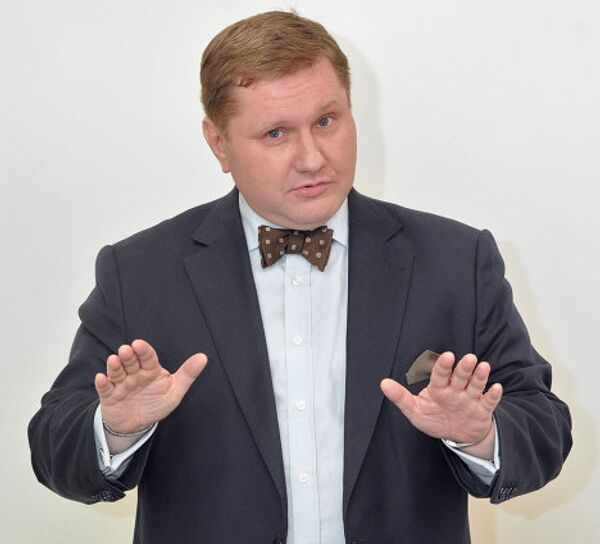While Vladimir Putin is strutting the global stage like a rock star in the wake of his diplomatic initiative on Syria, a new storm is gathering on the horizon. It could have a much deeper impact on Russia’s relations with its neighbors – as well as on the outside world – than the Kremlin’s gambit in the Middle East. As Ukraine, Moldova and Georgia prepare to sign association agreements with the European Union at the summit in Vilnius in the end of November, Moscow has shown its displeasure by waging what many are already calling a “customs war” on Kiev, hinting at drastically cutting gas supply to Chishinau and unilaterally seizing 400 square meters of Georgian territory.

Putin is angry at the Ukrainians’ refusal to join the Customs Union between Russia, Belarus and Kazakhstan that the Russian leader sees as prototype of a new entity called the Eurasian Union. It is supposed to be his “legacy project,” an attempt at formally enshrining Russia’s privileged status in Eurasia and challenging Western notions that development only succeeds when it is accompanied by democratization. Kiev’s – or, more specifically, president Viktor Yanukovych’s – refusal to join, opting for closer ties with the EU, is seen by the Kremlin not only as a challenge to Russia’s geo-strategic and geo-economic interests, but as an insult to Putin personally. He has put his reputation on the line, supporting the former convict-turned-politician through the thick and thin of the so-called Orange Revolution in Ukraine in 2004-2005 only to see Yanukovych turn his back on Russia in favor of the EU.
There will be serious implications if Ukraine, Moldova and Georgia sign the EU association agreements in the next two months.
Firstly, it will be the end of the post-Soviet space as we know it now, a fundamental challenge to the notion that Russia can somehow condition the sovereignty of the former Soviet republics. This will test their populations’ commitment to their historically young independence, as Moscow will use a combination of sticks and carrots to lure the Ukrainians, Georgians and Moldovans from the EU. It has already forced Armenia to abandon the idea of signing the association agreement. Moreover, these agreements as such do not bring immediate benefits to the three countries, while a range of Russian economic and political pressures could instantly inflict pain. This could well lead to rapid disillusionment with the European project, which could provide the Kremlin with political openings in the three states.
Secondly, it will lead to a clash of interests with the EU, as Moscow will try to hamper the ratification of the Vilnius agreements through vast lobbying efforts in the national parliaments of the member states, as well as via massive economic and political pressure applied on the “rebel states” themselves. Where this will take Moscow and Brussels is anyone’s guess right now, but it is clear that for both sides, this standoff will be a matter of principle rather than an opportunity to bargain.
Thirdly, the association of the three countries – especially Ukraine – with the EU will have domestic repercussions. Putin faces an uncertain economic future and the growth (albeit slow) of political discontent, but he is still credited by a majority of Russians with returning the country to the center stage of global politics and giving it back some of the USSR’s former influence. The loss of Ukraine will deal a blow to Putin’s image not so much in the eyes of the Russian people, who will be given a suitably conspiratorial propagandistic explanation by state-controlled TV, but in a significant part of the ruling class. The Eurasian Union on which Putin bet so much will be revealed as an exercise in political expediency by three authoritarian regimes rather than a shining example of Russia’s strength and attractiveness to neighbors.
Make no mistake: Russia, its neighbors and the EU are entering very rough waters indeed.
The views expressed in this article are the author’s and may not necessarily represent those of RIA Novosti.
What is Russia's place in this world? Unashamed and unreconstructed Atlanticist, Konstantin von Eggert believes his country to be part and parcel of the "global West." And while this is a minority view in Russia, the author is prepared to fight from his corner.
Konstantin von Eggert is a freelance commentator and consultant. In 2010-2013 he worked for Kommersant FM radio in Moscow as a commentator and as Editor-in-Chief. He was Diplomatic Correspondent for Izvestia in the 1990s and later the BBC Russian Service Moscow Bureau Editor. Konstantin has also spent some time working as ExxonMobil Vice President in Russia. He was made Honorary Member of the Order of the British Empire by Queen Elizabeth II.
Due West: A Dividing Issue, 20 Years On: Russia’s 1993 Constitutional Crisis
Due West: Russia’s G20 Summit Promised Little, and Delivered Even Less
Due West: The Kremlin Faces Tough Choices Over Syria
Due West: Russia’s Aggressive Defensiveness Is Damaging Its Image
Due West: Why Putin Sees Obama as a Weakling
Due West: Checks Without Balances
Due West: The Right to Bear Arms: An Issue to Divide Any Society
Due West: Hopes for the New Pope
Due West: Putin Plots to Avert a Crisis While Retaining Power
Due West: Coming to the Polling Station Near You – New Russian Conservatives



